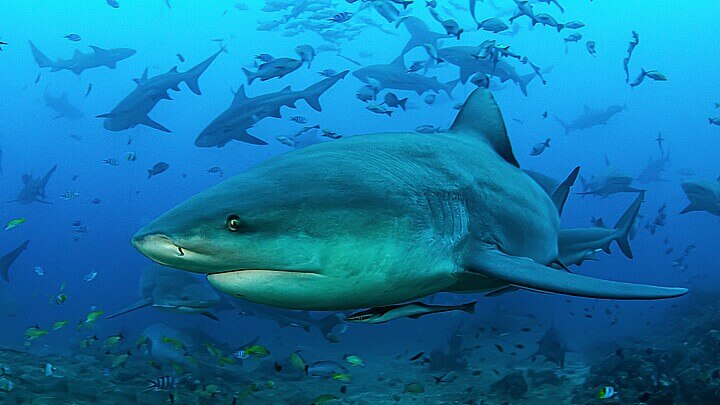Experts are claiming that as many as thousands of sharks off the Florida coast have been ingesting cocaine and other narcotics that have been dumped in coastal waters by smugglers.
For decades, bricks of cocaine and other narcotics have washed up on Florida beaches after drug smugglers from South and Central America dump them at sea to be picked up and brought into the United States. On two separate instances in April, for example, beachgoers found cocaine packages that had washed up on shore worth up to $700,000.
A new docuseries that is set to premiere this week on Discovery Channel as part of Shark Week titled “Cocaine Sharks” seeks to explore how these narcotics are affecting animal behavior in the ocean.
"The deeper story here is the way that chemicals, pharmaceuticals, and illicit drugs are entering our waterways — entering our oceans — and what effect that they then could go on to have on these delicate ocean ecosystems," said Marine biologist Tom “The Blowfish” Hird.
Throughout the documentary, Hird talked to several fishermen off the Florida Keys, who told him about sharks that were behaving strangely possibly due to drugs. Hird takes to the waters and also observed several sharks behaving irregularly, including one that was swimming in tight circles or another that was fixated on an object that wasn’t there.
To test their theory, Hird and environmental scientist for the University of Florida Tracy Fanara created packages that are similar in shape and size to the cocaine bales and dropped them into the ocean. Unsurprisingly, the sharks began taking bites off of them or dragging them away.
Hird said their experiment doesn’t necessarily prove that the sharks consume cocaine but it does give insights into how the sharks react to packages in the water. However, more experiments would be needed to draw a proper conclusion.
“We have no idea what [cocaine] could do to the shark,” Hird told Live Science. “So we can’t even say well this is a baseline and go from here.”









